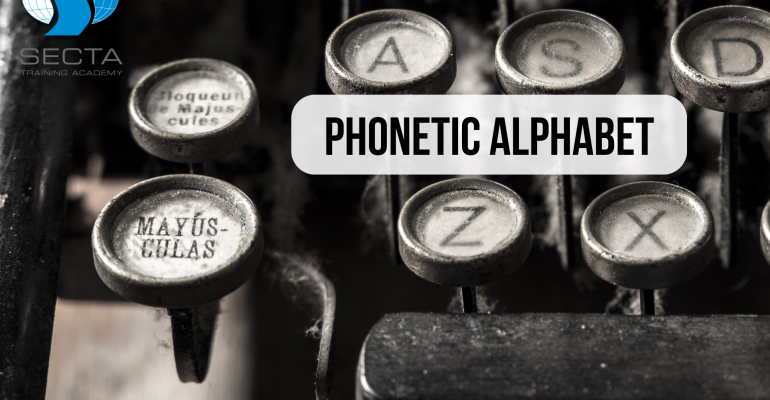Phonetic Alphabet
8 August 2023 2023-08-08 7:06Phonetic Alphabet
The Phonetic Alphabet, also known as the NATO phonetic alphabet or the International Radiotelephony Spelling Alphabet, is a standardized system of representing letters of the alphabet with specific words, each starting with the respective letter. This system is used to ensure clear and accurate communication, especially in situations where spoken communication might be distorted or misunderstood due to various factors like background noise, accents, or language barriers.
The Phonetic Alphabet consists of words like “Alpha,” “Bravo,” “Charlie,” “Delta,” and so on, each representing a letter in the English alphabet. For example, “Alpha” represents the letter “A,” “Bravo” represents “B,” and so forth.
The importance of the Phonetic Alphabet lies in its ability to eliminate confusion and ambiguity when communicating information, particularly in contexts where accuracy is crucial. Here are a few key reasons why it is important:
Clarity: In environments with poor audio quality or where language barriers exist, the Phonetic Alphabet ensures that letters are clearly understood and not confused with similar-sounding letters. This is especially important when communicating critical information like names, coordinates, or identification numbers.
Accuracy: Using the Phonetic Alphabet reduces the likelihood of misunderstanding or miscommunication. This is particularly vital in situations where errors could have serious consequences, such as in aviation, military operations, emergency services, and maritime operations.
Consistency: The Phonetic Alphabet provides a standardized method for representing letters across different languages and accents. This consistency helps bridge communication gaps between individuals who speak different languages or dialects.
Efficiency: Using the Phonetic Alphabet can save time by reducing the need for repetitions or corrections. This is crucial in fast-paced and high-pressure situations where quick and precise communication is essential.
Professionalism: Many industries and professions, such as aviation, maritime, law enforcement, and emergency services, require the use of the Phonetic Alphabet to maintain a professional and standardized communication protocol.
Cross-Cultural Communication: The Phonetic Alphabet is particularly useful in international contexts where individuals from different linguistic backgrounds need to communicate. It provides a common language for letter representation that transcends linguistic differences.
In summary, the Phonetic Alphabet is a valuable tool for ensuring clear, accurate, and efficient communication, especially in situations where standard spoken language may not suffice. Its use enhances safety, reduces errors, and maintains effective communication across various industries and scenarios.
www.secta.com.au



